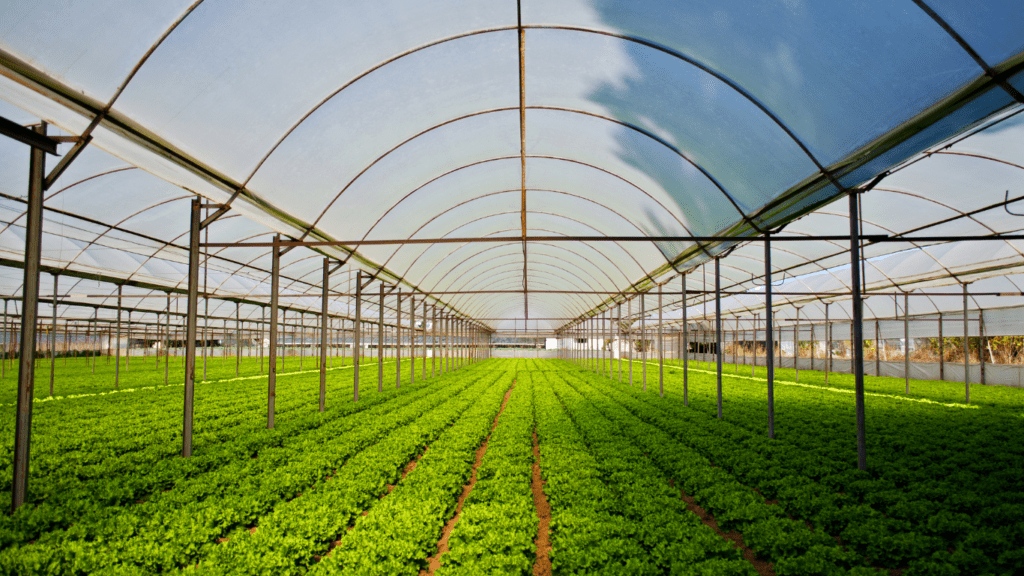Introduction:
In an era marked by escalating concerns over climate change, habitat destruction, and dwindling natural resources, the urgency to adopt sustainable practices has never been more pronounced. At the heart of this global imperative lies the food we consume daily, a fundamental aspect of human existence intricately tied to the health of our planet. Among the myriad of food production methods, organic farming stands out as a beacon of hope, offering a holistic approach that nurtures both human health and environmental vitality.
Organic foods, cultivated without the use of synthetic pesticides, fertilizers, or genetically modified organisms (GMOs), represent a paradigm shift towards regenerative agriculture. This shift is motivated not only by a desire to safeguard personal well-being but also to mitigate the ecological toll exacted by conventional farming practices. By prioritizing soil health, biodiversity preservation, and water conservation, organic farming presents a compelling model for sustainable food production in harmony with nature.
In this discourse, we embark on a journey to explore the profound impact of organic foods on our planet’s health. From dissecting the environmental ramifications of conventional agriculture to championing the virtues of organic farming practices, we uncover the pivotal role that organic foods play in forging a path towards a more resilient and flourishing world.
The Environmental Impact of Conventional Agriculture
Conventional agriculture, characterized by intensive chemical inputs and mechanized practices, has long been the cornerstone of global food production. However, its widespread adoption has come at a steep environmental cost, manifesting in a litany of ecological challenges that jeopardize the health of our planet.

At the forefront of these challenges is the rampant pollution stemming from the use of synthetic pesticides and fertilizers. In the pursuit of maximizing yields and controlling pests, conventional farmers indiscriminately apply chemical cocktails that seep into soil, waterways, and air. This contamination not only poses direct threats to human health but also disrupts delicate ecosystems, decimating populations of beneficial insects, birds, and aquatic life.
Moreover, conventional agriculture exacerbates soil degradation and erosion, stripping landscapes of their natural fertility and resilience. The relentless tilling, monocropping, and chemical assault degrade soil structure, rendering it vulnerable to erosion by wind and water. The loss of topsoil, rich in organic matter and essential nutrients, undermines the long-term viability of agricultural lands, perpetuating a cycle of degradation that threatens global food security.
Water contamination and depletion further compound the environmental toll of conventional agriculture. Runoff laden with chemical residues infiltrates water bodies, contaminating freshwater sources and jeopardizing aquatic ecosystems. Additionally, the excessive irrigation necessitated by monocropping and water-intensive crops depletes aquifers and exacerbates water scarcity in regions already grappling with drought and desertification.
Perhaps most alarmingly, conventional agriculture is a significant contributor to greenhouse gas emissions, exacerbating the existential threat of climate change. The reliance on fossil fuels for machinery, transportation, and synthetic inputs, coupled with deforestation to expand agricultural frontiers, releases carbon dioxide and other greenhouse gases into the atmosphere, fueling global warming and destabilizing climatic patterns.
In sum, the environmental impact of conventional agriculture is staggering, encompassing pollution, soil degradation, water depletion, and climate change. This unsustainable trajectory not only imperils the delicate balance of ecosystems but also undermines the very foundation of our food systems. In the face of these mounting challenges, the imperative to transition towards more sustainable and regenerative practices, such as organic farming, has never been clearer.
Organic Farming Practices
Organic farming represents a paradigm shift away from conventional agricultural methods, embracing principles of biodiversity, soil health, and ecological harmony. At its core, organic farming prioritizes the cultivation of crops and livestock without the use of synthetic pesticides, fertilizers, or genetically modified organisms (GMOs). Instead, it employs a diverse array of techniques and practices aimed at fostering sustainable and regenerative agricultural systems.

One of the central tenets of organic farming is the elimination of synthetic chemicals in favor of natural alternatives. Instead of relying on toxic pesticides and herbicides, organic farmers employ integrated pest management strategies, leveraging beneficial insects, crop rotation, and companion planting to mitigate pest pressure. Likewise, organic fertilization eschews synthetic inputs in favor of compost, cover crops, and crop rotations, enriching soil fertility while minimizing environmental pollution.
Moreover, organic farming places a strong emphasis on soil health and biodiversity preservation. By eschewing intensive tillage and monocropping, organic farmers promote soil structure, organic matter accumulation, and microbial diversity, fostering resilient and productive agroecosystems. Cover cropping, mulching, and agroforestry further enhance soil conservation and carbon sequestration, mitigating the impacts of climate change while enhancing long-term soil fertility.
Water conservation is another cornerstone of organic farming practices, with techniques such as drip irrigation, rainwater harvesting, and soil moisture management minimizing water usage and runoff. By optimizing irrigation efficiency and enhancing soil water retention, organic farmers mitigate water scarcity and pollution, safeguarding freshwater resources for future generations.
Furthermore, organic farming is characterized by a commitment to reducing its carbon footprint and mitigating climate change. By eschewing synthetic inputs and minimizing reliance on fossil fuels, organic agriculture significantly reduces greenhouse gas emissions associated with conventional farming practices. Moreover, organic farming’s emphasis on carbon sequestration through soil organic matter accumulation and agroforestry further contributes to climate change mitigation efforts.
In essence, organic farming embodies a holistic approach to agriculture that prioritizes environmental sustainability, soil health, and biodiversity conservation. By embracing natural processes and minimizing external inputs, organic farmers nurture resilient and productive agroecosystems that not only sustainably feed a growing population but also safeguard the health of our planet for generations to come.
Benefits of Choosing Organic Foods
The decision to embrace organic foods extends beyond personal health considerations, encompassing a myriad of benefits for individuals, communities, and the planet at large. From nutritional superiority to environmental stewardship, the advantages of choosing organic extend far beyond the confines of the dinner plate.
One of the most compelling arguments in favor of organic foods lies in their superior nutritional profile. Studies have consistently shown that organic produce tends to contain higher levels of essential nutrients, antioxidants, and phytochemicals compared to their conventionally grown counterparts. By eschewing synthetic pesticides and fertilizers, organic crops are forced to rely on natural defense mechanisms, resulting in higher concentrations of beneficial compounds that promote human health and well-being.
Moreover, organic foods offer a sanctuary from the toxic residues and environmental contaminants prevalent in conventional agriculture. By choosing organic, consumers can minimize their exposure to synthetic pesticides, herbicides, and genetically modified organisms (GMOs), reducing the risk of adverse health effects ranging from allergic reactions to chronic diseases. Furthermore, organic farming practices prioritize soil and water conservation, minimizing pollution and safeguarding precious natural resources for future generations.
Beyond individual health benefits, choosing organic foods also fosters broader social and environmental advantages. By supporting organic farmers and local food systems, consumers contribute to the vitality of rural communities and small-scale agricultural enterprises. Organic farming practices, with their emphasis on biodiversity, soil health, and carbon sequestration, also play a crucial role in mitigating climate change and preserving ecosystem integrity.
Furthermore, the adoption of organic agriculture holds promise for revitalizing degraded landscapes and promoting sustainable land management practices. By restoring soil fertility, enhancing biodiversity, and promoting agroecological resilience, organic farming offers a pathway towards regenerative agriculture that nurtures both people and the planet.
In essence, the benefits of choosing organic foods extend far beyond individual health considerations, encompassing social, environmental, and economic dimensions. By embracing organic agriculture, consumers can not only nourish their bodies with wholesome, nutrient-dense foods but also contribute to a more sustainable and resilient food system that prioritizes the health of people and the planet alike.
Challenges and Misconceptions
While the benefits of organic foods are undeniable, the widespread adoption of organic agriculture faces several challenges and misconceptions that hinder its progress. Addressing these obstacles is crucial for realizing the full potential of organic farming in promoting sustainability and environmental stewardship.
One of the most pervasive misconceptions surrounding organic foods is the notion that they are prohibitively expensive and inaccessible to the average consumer. While it is true that organic foods often command a price premium due to higher production costs and certification requirements, this cost differential is not solely attributable to the intrinsic value of organic farming. Factors such as economies of scale, government subsidies favoring conventional agriculture, and limited market access for organic producers contribute to the perception of organic foods as luxury items.
Furthermore, the lack of understanding and awareness regarding organic farming practices perpetuates misconceptions about its efficacy and feasibility. Skepticism regarding the efficacy of organic pest management strategies, concerns about lower yields compared to conventional agriculture, and misconceptions about the nutritional superiority of organic foods are among the common misconceptions that impede the widespread adoption of organic farming.
Additionally, resistance from entrenched interests in the conventional agriculture industry poses a significant barrier to the expansion of organic agriculture. Agribusiness giants wield considerable influence over government policies, research funding, and market access, perpetuating a status quo that favors chemical-intensive, monocrop agriculture over sustainable and regenerative practices. Overcoming this resistance requires concerted efforts to advocate for policy reforms, increase public awareness, and foster collaboration between stakeholders across the food system.
Moreover, the fragmented nature of organic certification standards and labeling regulations further complicates consumer decision-making and market transparency. The proliferation of third-party certification bodies, varying standards of organic certification, and inconsistent labeling practices undermine consumer confidence and trust in the organic label. Streamlining certification processes, harmonizing standards, and enhancing transparency in labeling are essential steps towards building consumer confidence and expanding market opportunities for organic producers.
In summary, while organic agriculture holds immense promise for promoting sustainability, environmental stewardship, and human health, it faces several challenges and misconceptions that hinder its widespread adoption. Overcoming these obstacles requires concerted efforts to address cost barriers, increase public awareness, overcome industry resistance, and enhance transparency in certification and labeling practices. By collectively addressing these challenges, we can unlock the full potential of organic agriculture in building a more resilient, equitable, and sustainable food system for future generations.
Steps Towards a More Sustainable Food System
Transitioning towards a more sustainable food system requires a multifaceted approach that encompasses policy reforms, consumer education, technological innovation, and collective action across the food supply chain. By addressing systemic barriers and fostering collaboration between stakeholders, we can catalyze the shift towards regenerative agriculture practices that prioritize environmental stewardship, social equity, and human well-being.
One of the fundamental pillars of building a sustainable food system is reforming agricultural policies to incentivize and support organic farming practices. Governments play a pivotal role in shaping agricultural policies, from subsidizing conventional agriculture to regulating food safety and labeling standards. Redirecting agricultural subsidies away from chemical-intensive monocropping towards agroecological practices such as organic farming can level the playing field and promote sustainable land management practices.
Furthermore, investing in research and innovation is essential for advancing sustainable agricultural practices and overcoming technological barriers to organic farming. Research funding should prioritize agroecological research, soil health management, and organic pest management strategies to enhance productivity, resilience, and profitability for organic farmers. Additionally, supporting the development of affordable and accessible technologies such as precision agriculture tools, renewable energy systems, and water-efficient irrigation methods can empower farmers to transition towards more sustainable farming practices.
Consumer education and awareness are also critical components of fostering demand for organic foods and driving market transformation. Empowering consumers with knowledge about the benefits of organic farming, environmental impacts of conventional agriculture, and the importance of supporting local and sustainable food systems can influence purchasing decisions and drive demand for organic products. Educational campaigns, public outreach initiatives, and partnerships with media outlets can amplify messaging about the benefits of organic foods and promote behavior change towards more sustainable dietary choices.
Moreover, fostering collaboration between stakeholders across the food supply chain is essential for building a more resilient and sustainable food system. Engaging with farmers, food producers, retailers, policymakers, NGOs, and consumers to develop collaborative solutions, share best practices, and promote transparency and accountability can catalyze systemic change. Partnerships between organic producers and retailers, supply chain traceability initiatives, and certification schemes can enhance market access and consumer trust in organic products.
In conclusion, transitioning towards a more sustainable food system requires concerted efforts to reform agricultural policies, invest in research and innovation, educate consumers, and foster collaboration across the food supply chain. By collectively addressing systemic barriers and promoting organic farming practices, we can build a food system that nourishes people, supports local economies, and safeguards the health of our planet for future generations.
Conclusion
In the quest to build a more sustainable future, the role of organic foods as a linchpin of environmental stewardship and human well-being cannot be overstated. Throughout this discourse, we have explored the profound impact of organic farming on our planet’s health, from mitigating the environmental toll of conventional agriculture to fostering resilience in the face of climate change.
Organic farming practices, rooted in principles of biodiversity, soil health, and ecological harmony, offer a blueprint for regenerative agriculture that nurtures both people and the planet. By eschewing synthetic chemicals, prioritizing soil conservation, and minimizing their carbon footprint, organic farmers exemplify a commitment to sustainability that transcends mere agricultural production.
Moreover, the benefits of choosing organic foods extend far beyond personal health considerations, encompassing broader social, environmental, and economic dimensions. By supporting local food systems, fostering rural livelihoods, and promoting biodiversity conservation, organic agriculture offers a pathway towards a more equitable and resilient food system that nourishes communities and ecosystems alike.
However, the journey towards a more sustainable food system is not without its challenges and obstacles. From overcoming misconceptions and cost barriers to navigating policy reforms and industry resistance, the transition towards organic agriculture requires concerted efforts and collective action from all stakeholders involved.
Moving forward, it is imperative that we continue to advocate for policies that support organic farming, invest in research and innovation, educate consumers, and foster collaboration across the food supply chain. By collectively addressing these challenges and embracing the principles of organic agriculture, we can unlock the full potential of organic foods in building a more resilient, equitable, and sustainable future for generations to come.
In closing, let us reaffirm our commitment to organic farming as a cornerstone of sustainability and environmental stewardship. By choosing organic, we not only nourish our bodies with wholesome, nutrient-dense foods but also contribute to a healthier, more vibrant planet for future generations to inherit. Together, let us embrace the power of organic foods to save our planet and create a brighter tomorrow for all.
Further Reading
- Benefits Of Organic Food
- What Is Organic Food, and Is It Better Than Non-Organic Food?
- Organic foods: Are they safer? More nutritious?
Explore Micro2media.com
- Listening to the Land: Invasive Plants Disrupt Ecosystem Soundscapes
- Riding the Waves of Life: Unveiling the Vital Role of the Water Cycle on Our Planet
- Hydrate and Thrive: Unlocking the Power of Cucumber for Wellness

